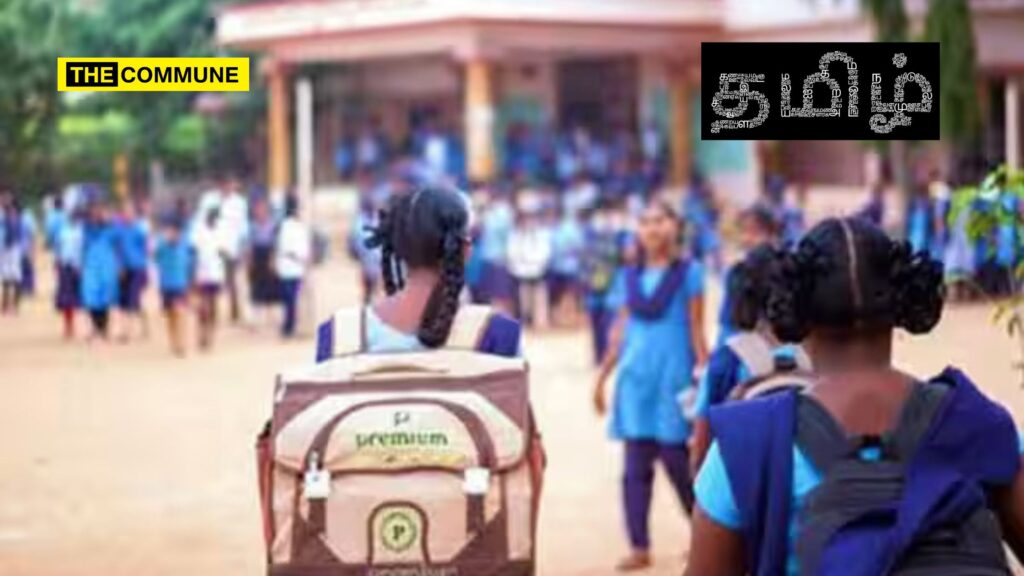In Tamil Nadu, educators and activists are sounding the alarm that mandatory to pass up to Grade VIII is starting to become a hindrance for students’ learning capabilities and motivation, potentially impacting their proficiency in their native language for government school students.
“As all students attend government schools from Grade I to Grade VIII and passing is mandatory, students transitioning to Grades 9 and 10 often face difficulties in both writing and reading in Tamil,” says Dinamalar’s ground report.
The Tamil Nadu Government is implementing various initiatives to enhance the quality of education for students in government schools throughout the state. While government schools typically promote students from Grade I to Grade VIII regardless of their academic proficiency, some students entering Grade IX lack fundamental educational skills.
Concerning this issue, activists have pointed out that students in government schools from Grade one to eight can proceed to the next grade without writing exams if their names are on the attendance registers, with a 75% attendance requirement. However, many teachers overlook this rule.
It is only in the ninth grade that a student’s academic capabilities become evident. Some students struggle with basic literacy skills in Tamil, impacting their ability to comprehend subjects like science and social science. Even if they manage to pass the 10th grade, teaching and ensuring their success becomes a major challenge for educators.
In response to this, government schoolteachers suggest that students falling behind academically in the 10th grade should consider enrolling in vocational training institutions or other vocational education centers. The law mandates that a student who wishes to continue in the same school for the 10th grade must be admitted.
Although progression from Grade I to Grade VIII is guaranteed with a 75% attendance rate, students can excel with above-average marks if they attend classes regularly. Children of migrant families from states like Odisha and Bihar easily learn Tamil literacy skills during primary school. Conversely, some students raised in Tamil Nadu struggle to read and write in Tamil even after the eighth grade, emphasizing the shared responsibility of teachers and parents in ensuring a child’s education.
Regarding this, a school education department official has instructed all headmasters to identify students with poor reading, writing, and math skills in government schools and enhance these skills. Schools are requested to upload details of students from sixth to ninth grade with inadequate literacy and math abilities on the Educational Management Information System (EMIS) platform.
தமிழ் படிக்கவே தடுமாற்றம்!#govtschool | #Tamil | #compulsorypass | #schoolstudentshttps://t.co/y4W3uzOWeZ pic.twitter.com/O5xJQshjfc
— Dinamalar (@dinamalarweb) July 9, 2024
The ground report shows the significance of language in achieving universal foundational learning, highlighting that the NEP 2020 prioritizes teaching and learning in the home or local language until at least Class V, preferably up to Class VIII and beyond. This approach was described as practical in fostering multilingualism and enhancing the role of language in education.
In a previous survey conducted by Stanford University’s Institute for Competitiveness in February 2023, findings showed varying performance levels based on the medium of instruction. Students instructed in Punjabi demonstrated the highest performance among Indian languages, with 51% exceeding global proficiency levels and only 6% falling below partially global proficiency levels. Conversely, students learning in Tamil had the lowest performance, with only 9% surpassing global proficiency levels and 48% below partially global proficiency levels.
Subscribe to our channels on Telegram, WhatsApp, and Instagram and get the best stories of the day delivered to you personally.

